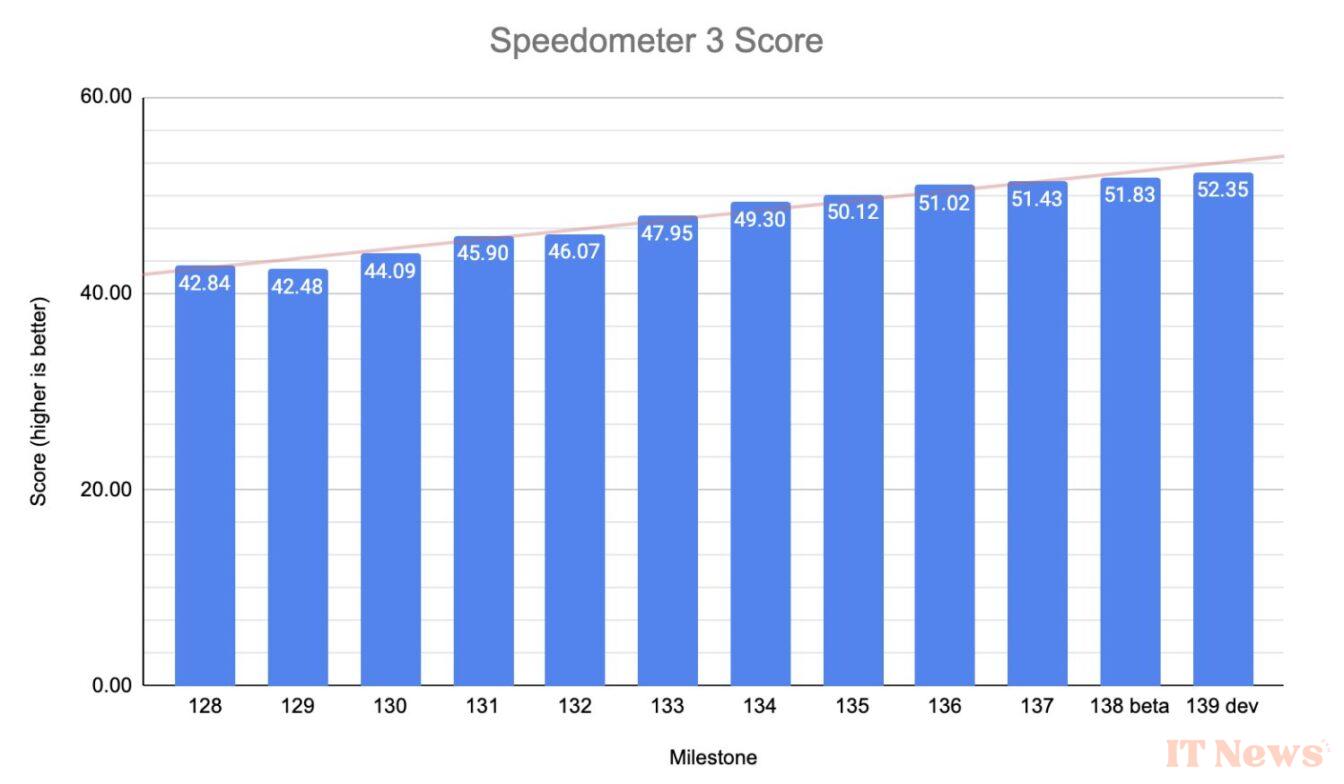Chrome hasn't always shone when it comes to performance. Google's web browser used to have a rather poor reputation for memory management. But much water has flowed under the bridge since then. Over the past few years (and with the latest Chrome updates), Google engineers have made numerous optimizations to improve the performance of the browser, "the central pillar of Chrome."
The company explains that it has "continuously invested" to monitor progress and identify possible improvements to its browser. And clearly, the work has paid off, as Chrome has just achieved its best score ever with the Speedometer 3 benchmark.
Performance in constant evolution
To test its browser, Google relies on Speedometer 3, a benchmarking tool developed in collaboration with Apple, Mozilla, Intel and Microsoft. The main objective of this tool is to test the responsiveness of web applications, by evaluating different workloads, such as HTML parsing or Javascript processing. Concretely, by submitting Chrome to Speedometer tests, Google teams were able to test critical components of the browsers, and therefore identify the functions on which they are struggling.
The Mountain View firm explains that since the creation of this benchmarking tool in 2022, Chrome's performance score has increased by 72%, and even by 10% since August 2024 alone. Google indicates that the improvement in this performance translates into a better browsing experience, but also a considerable reduction in the waiting time for websites to load and function.
Continuous optimization work
In its blog post, Google outlines the optimizations made to achieve this result. The development teams focused on ensuring Chrome better manages the memory used. Improvements have also been integrated into the management and application of CSS styles. Concretely, this translates into faster display of the various elements of a page, particularly text.
The developers have also identified the queries most frequently requested by websites and optimized their processing so that Chrome can perform them more quickly.
Finally, the V8 Javascript engine, an essential software component for running interactive modules on web pages, has been improved. It is now able to identify the most important parts of the code on a page to execute them first.
Source: Google



0 Comments